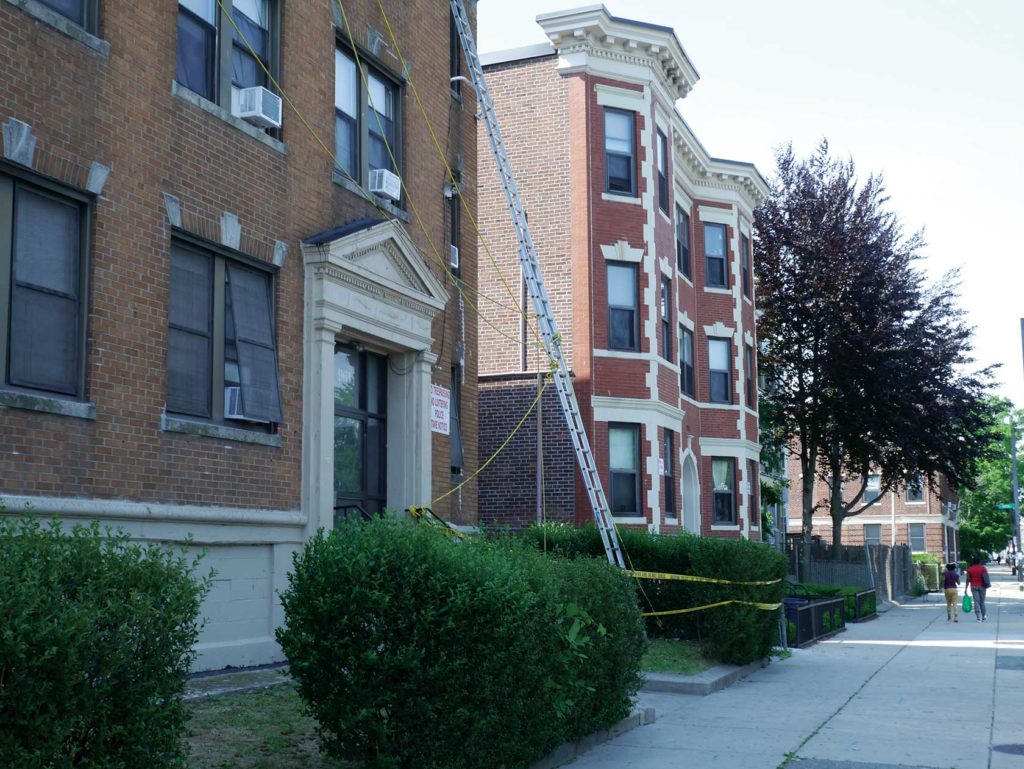Bostonians air views on rent control
Mayor’s office holds first listening session

Last Tuesday, the Mayor’s Office of Housing (MOH) held its first listening session to discuss Mayor Wu’s rent stabilization initiative — a policy that she plans to put before state lawmakers next year.
In March, Wu established a 23-member advisory committee tasked with studying local housing conditions and the feasibility of rent stabilization measures. As part of that effort, the group has asked for public feedback on the state of housing affordability and the potential solutions to make the city more accessible.
The mayor ran her campaign largely on the promise of helping combat rising rental costs and displacement, including using rent control, which was outlawed by Massachusetts voters nearly 30 years ago.
In its first rent stabilization “listening session” with the public, nearly 300 people joined in over Zoom sharing their thoughts, mostly on whether they are for or against any form of rent control, or rent stabilization, terms that have been used interchangeably since the mayor first campaigned on the issue. A mix of landlords and affordable housing advocates gave testimony that ultimately turned adversarial in its tone — landlords painting rent control as a disastrous policy, while tenants struggling to find affordable housing painted it as a vital lifeline.
One renter, Robin Williams, said she is struggling to make ends meet for herself and her children even while working multiple jobs.
“Some days I’ve had to think, should I pay my rent or buy food, put clothes on my children’s back and my back?” Williams said. “I’m struggling, and this rent is ridiculous.”
Among those who testified vehemently against rent control were a representative from the organization Mass Landlords, reps from the leasing company 617 Living and the online rental database Boston Pads and a spattering of homeowners calling themselves small landlords.
Referring to her current model as a “mom and pop” operation, Alexandra Bartsch, whose family has owned 30 units in Allston since the 1960s, said rising inflation has already taken a dent out of landlords’ earnings, and that rent control prevents price adjustments based on market conditions.
“There is no stabilization for our mortgage. There’s no stabilization for taxes, which keep going up. There is inflation,” she said. “There’s no stabilization for the plumbers or the contractors who have to repair these places.”
Bartsch went on to say that her family was nearly “forced into bankruptcy” by rent control decades ago.
“Rent control always fails and decimates the housing stock and does not work in favor of the people who need it most,” Bartsch said.
Other issues raised on the anti-rent-control side of the issue included hesitation to raise prices on loyal elderly tenants. Multiple landlords presented the scenario in which rent control would go into effect and prices would permanently remain in a lowered state.
Stuart Schrier, a landlord himself but also an attorney for landlords across the state lobbying against rent control, said Tuesday that the policy is going to “force him to raise rent.”
“I could triple his rent and still be below market,” Schrier said of his long-time upstairs tenant. “But I don’t want to do that.”
Additionally, a common thread throughout the anti-rent-control side’s testimony was the idea that regulating a free market, one with such a limited commodity, was out of the city’s purview.
“The fact is, it’s a supply and demand issue,” said Cris Bratsis. “The idea that the government wants to govern and take away my private ownership and what I do with my property and who I rent it to, is, to me, an absurd notion.”
And while some housing experts have pointed to the scarcity of available rental units across the Greater Boston area as a problem, affordable housing advocates say this actually works in landlords’ favor and that the need to keep up with market rates is just a fear-mongering tactic tied to lost revenue.
“Most of the properties that would be rent-stabilized are not individual landlords or individual property owners,” advocate and tenant Conrad Ciszek said. “Most of them are multi-million-dollar or billion-dollar corporations that are price-gouging tenants, displacing them, all for the purpose of manipulating the market to pad their pockets and maximize their profits.”
Mike Leyba, co-executive director at the tenant advocacy group City Life/Vida Urbana, echoed Ciszek’s argument that depending on how the mandate is written, a rent-control policy doesn’t have to include owner-occupied units or “small landlords.”
“It doesn’t target small owner-occupant landlords — literally nobody is advocating for that. And it doesn’t cause the sky to fall or the market to collapse,” Leyba said.
He pointed to successful rent-control policies in Oregon, New York and California.
Leyba added that 65% of Boston residents, many of which are low-income people and people of color, would be helped by rent stabilization.
After nearly 90 minutes of testimony, city staff invited those whose points were not able to be made to share their testimony via email at housing@boston.gov.
Listening session organizers said more sessions are to be announced in coming weeks before city councilors craft legislation to be put before the state. Also, depending on state leadership come January, the openness at the state level to such a policy will likely vary.






